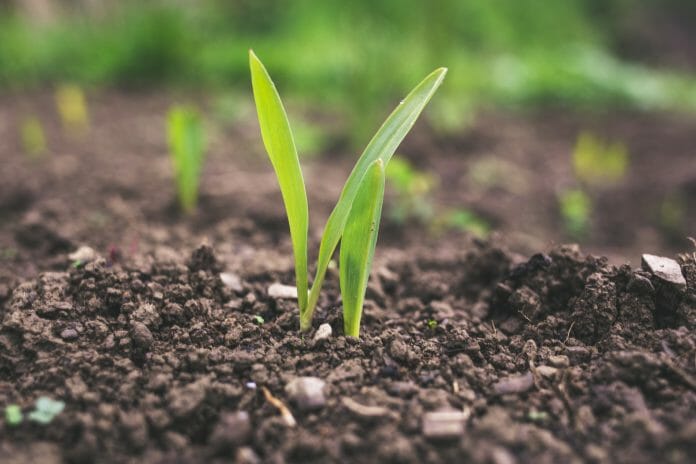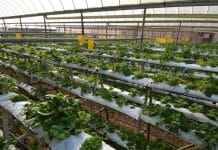The majority of the economies of emerging nations are based on agriculture, which feeds and supports a large number of individuals.
However, due to climate change (CC), this industry is increasingly susceptible, and emerging nations like Malaysia are particularly exposed. Due to CC, floods, droughts, and heat stress have increased in frequency, devastating farming regions. Significant problems are faced by Malaysia’s agricultural sector. The agriculture sector’s share of the nation’s GDP declined from 43.7 to 7.1 per cent between 1960 and 2021. This is contradictory given the nation’s cropping land increase of 9.4 per cent of total land area in 1961 to 26.3 per cent in 2015 (World Bank 2021).
On the other hand, this could indicate significant unresolved problems and demonstrate unequivocally how ineffective Malaysia’s agriculture industry has been. As a result, the nation experiences a food shortage and must depend on imports to satisfy its nutritional demands.
Malaysia purchased US$583 million worth of rice in 2021, making it the world’s 12th largest importer of rice. Malaysia purchased 3.7 million tonnes of maize and US$176 million worth of coffee and tea extracts in the same year. The dependency on food imports may endanger the entire nation, especially if worldwide supplies of food are suddenly decreased owing to natural disasters or crop diseases.
Although agriculture is a major economic sector in Malaysia, it is influenced by the tropical environment and the economic landscape as a whole. Oil palm and cocoa are examples of profitable crops that dominate the agricultural sector. Rather, the cultivation of nutritional products, such as fruits and veggies, is unusual. Although the rice production industry has only attained about 65 per cent self-reliance, Malaysia has always been heavily reliant on foreign vegetables and fruits because its own output is unable to satisfy the demands of the local market.
Malaysia’s nutrition strategy is confronted with numerous issues, the most pressing of which is the rise in worldwide food costs. When food supplies are insufficient and unreliable, those with low incomes will certainly bear the brunt, whereas the upper class is going to suffer from rising basic living expenditures.
Why sustainable agriculture is critical
Therefore, sustainable agriculture is critical for various reasons.
Firstly, sustainable agriculture practices strive to reduce negative environmental impacts. Sustainable agriculture protects ecosystems, biodiversity, and natural resources through encouraging soil health, preserving water resources, and limiting the use of toxic pesticides. It encourages practices including organic farming, agroforestry, crop rotation, and integrated pest control, which help with soil conservation, water quality, and general environmental health.
Secondly, with the world’s population expanding, guaranteeing food security is a major challenge. Sustainable agriculture prioritises long-term productivity by preserving soil fertility, reducing erosion, and encouraging crop diversity. Farmers may strengthen their resilience to climate change, extreme weather events, and other possible problems by adopting sustainable practices, providing a steady food supply for current and future generations.
Thirdly, by lowering greenhouse gas emissions, sustainable agriculture practises help to combat climate change. Agroforestry and conservation tillage, for example, trap carbon dioxide from the atmosphere and assist to lower the agricultural sector’s carbon footprint. Furthermore, sustainable agriculture promotes the utilisation of sources of clean energy and increases energy efficiency in farming activities, which aids in climate change mitigation.
Fourthly, farmers and rural communities can benefit economically from sustainable agriculture. Farmers can minimise input costs, enhance production, and enhance product quality by implementing sustainable practises. Moreover, sustainable agriculture frequently encourages local and organic agricultural mechanisms, which can create jobs and help the local economy.
Fifthly, water conservation and efficiency are important aspects of sustainable agriculture. It reduces water waste and protects water resources by using practices such as drip irrigation, rainwater collection, and crop selection that is water-efficient. This is especially crucial in areas where there is a scarcity of water or where unsustainable farming practices have resulted in water contamination and loss.
Finally, yet importantly, sustainable agriculture aims to reduce the use of synthetic fertilisers, chemicals, and antibiotics, all of which can be harmful to human health. It reduces chemical residues in food, protects farm workers from hazardous substances, and promotes healthier food options for consumers through promoting organic farming and sustainable animal practices.
Consequently, a few suggestions might be made regarding Malaysia’s sustainable agricultural output.
Malaysian authorities must develop cohesive adaptation and mitigation measures to tackle the currently evident impact of CC on farming with the goal to reclaim strong and sustained output from agriculture.
Need to reconsider climate change adaptation methods
As a result, Malaysia must reconsider its climate change adaptation methods, taking the following into account:
To begin with, weather forecasters, legislators, and academics must devise effective tactics and develop broad plans to tackle the concerns of climate change. It will result in a sustained boost in a nation’s self-sufficiency and food safety.
Secondly, the nation ought to focus on improving growers’ adaptation capability to the effects of the changing climate on their farming operations.
Thirdly, using research on agriculture, the Malaysian government ought to implement policy-based modifications. Furthermore, Malaysia has yet to formulate its own national strategy on agricultural adaptation to climate change.
Finally, certain strategies and programmes under existing policy must be revised. Because of the multi-dimensional nature of food safety, the usage of self-sufficiency level as a measurement of nutrition safety, for example, may be meaningless.
Overall, environmentally friendly farming is critical to tackling the interconnected issues of deterioration of the environment, nutrition, climate change, and the health of the people. It takes a comprehensive approach to farming, balancing financial sustainability, social equality, and environmental care.
Dr Rulia Akhtar is a Research Fellow at the Ungku Aziz Centre for Development Studies (UAC), Office of Deputy Vice Chancellor (Research & Innovation), Universiti Malaya, Malaysia.









